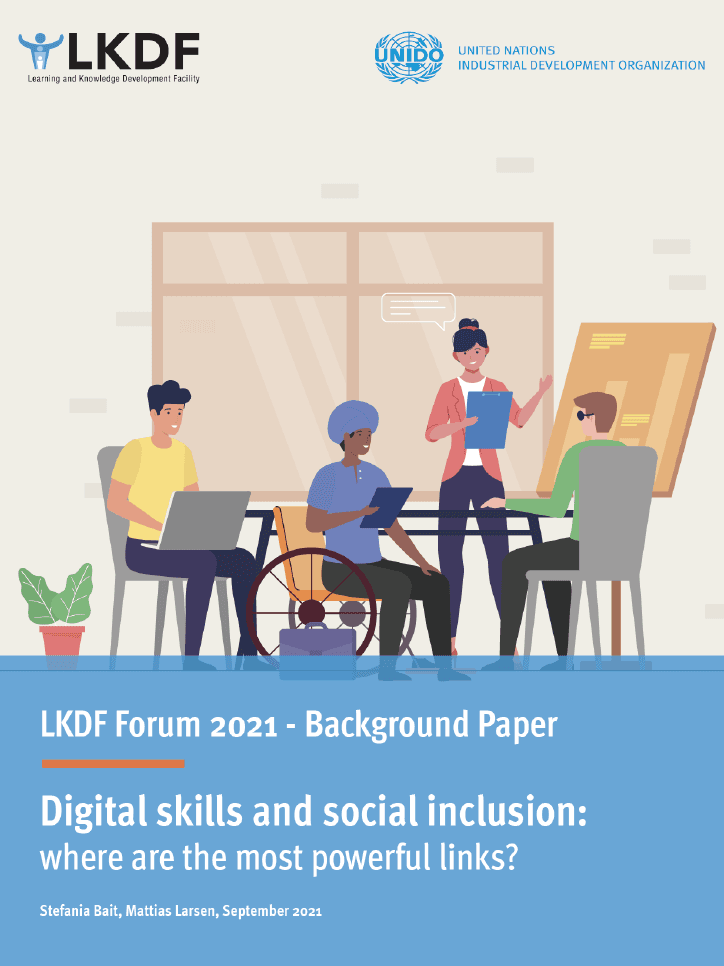Background Paper for the LKDF Forum 2021
Over the last few decades, the diffusion of information and communication technologies has created enormous opportunities to enhance the well-being of people. Moreover, the pandemic has sharply highlighted the importance of those technologies in our lives, accelerating the digital transition path.
As a result, the need to develop digital skills among the population has rapidly grown. A number of institutions within academia, industries and policymakers are investigating new strategies to support skills development, bridging the existing discrepancy between developed and less developed countries. One of the most crucial elements in this effort is social inclusion, in other words equal access to opportunities and resources.
This background paper aims to show first whether critical elements linked to inclusion are correlated with the level of digital skills among the population and, if so, how they are correlated. The discussion highlights the most robust relationships, outlining the importance of inclusion as an essential requirement for digital skills development. In addition, we look closely at the most powerful links in the education field.
The main findings provided by the analysis are that there is a link between the level of gender equality and inclusion and the level of digital skills held by the population. This link is even stronger in the cases of African countries.
In addition, the analysis shows that the link between digital skills and educational or vocational training is much stronger than that between such skills and the years of schooling.
Lastly, this report emphasizes that Internet access is not sufficient to guarantee digital skills development.
